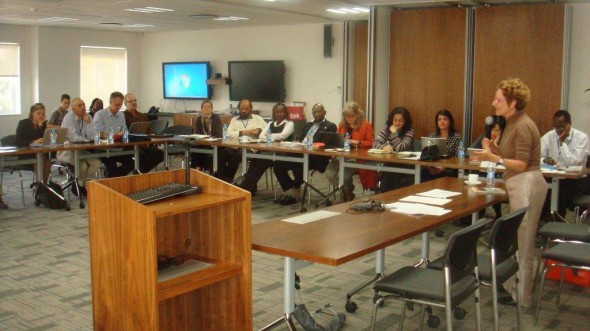The UN Special Rapporteur on the Right to Adequate Housing hosted on May 27th and 28th, in the city of Johannesburg (South Africa), a consultation on security of tenure for the urban poor in the African continent. Organized in partnership with the Ford Foundation and the Socio-Economic Rights Institute (a South African non-governmental organization), the consultation was attended by government representatives, international agencies, consultancy entities, civil society organizations, social movements and universities from different African countries, such as Egypt, Kenya, Madagascar, Nigeria, Senegal, Uganda, and South Africa.
The event had the purpose of identifying, based on these countries’ experience, the main challenges and obstacles to the strengthening of security of tenure for urban poor, particularly of those living in informal settlements. In addition, it also sought to collect suggestions of practices, policies and legislations implemented in the continent that have faced such challenges/obstacles and that may become part of guidelines (orientations to UN member states) to be presented by the Rapporteur to the Human Rights Council on her next report.
On the first day, the consultation started with explanatory panels from the guests, who presented their respective countries’ experiences around four thematic axes: informal settlements upgrading, regularization and titling; land reforms and land management; urban policies and land market; litigation, advocacy, and other civil society initiatives. At the end of the day, an overall outlook was made along with the participants, containing the main challenges/obstacles detected from these experiences, which were gathered according to four main themes: political economy of land; financial role of land; multiple land tenure systems; and definition of principles and concepts related to security of tenure.
Divided into smaller discussion groups and using a participative methodology elaborated for the consultation, participants developed, during all morning of the second day, strategies and intervention proposals to overcome the identified challenges/obstacles. Following the presentation and debate of the final results achieved in each group, participants were invited to identify the main recommendations that should be included in the guidelines to be presented along with the next thematic report to the Council on March 2014.
Soon a consolidated report will be available on our virtual platform. Meanwhile, you may already check the participants’ presentations and reports.
Check more photos of the event here.


Leave a Reply